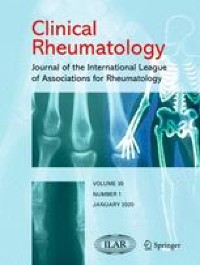Abstract
The reported prevalence of small intestinal bacterial overgrowth (SIBO) among patients with systemic sclerosis (SSc) is highly variable. We conducted this systematic review and meta-analysis to estimate the prevalence and identify predictors of SIBO in SSc by summarizing all of the available data. A comprehensive literature search of the PubMed, Cochrane Library, and EMBASE databases from inception to July 2020 was conducted for studies correlating SIBO with SSc. Studies were screened, and relevant data were extracted and analyzed. The pooled prevalence of SIBO among SSc patients and the odds ratio (OR) of SIBO among SSc patients compared with healthy controls were calculated. Furthermore, predictors of SIBO in SSc were evaluated. Fourteen studies containing 700 SSc patients and 217 healthy controls met the inclusion criteria. The pooled prevalence of SIBO in SSc was 34% (95% CI 27–42%). The OR of SIBO in SSc patients was 12.51 (95% CI 6.51–24.03) compared wi th the healthy controls. Subgroup analyses showed that the prevalence of SIBO in SSc was higher in studies using the lactulose hydrogen breath test (LHBT) for diagnosis (56%, 95% CI 46–67%) compared with those that used the glucose hydrogen breath test (GHBT) (27%, 95%CI 20–35%) and a jejunal aspirated culture (JAC) (35%, 95%CI 25–51%). The prevalence of SIBO in SSc was higher in studies conducted in Western countries (38%, 95% CI 31–47%) than those conducted in Asian countries (15%, 95%CI 10–23%), and the prevalence of SIBO in the SSc population defined by ACR-EULAR 2013 (50%, 95% CI 0.21–0.79) was higher than the prevalence defined by ACR 1980 (30%, 95% CI 0.17–0.42) or other criteria (32%, 95% CI 0.16–0.48) Moreover, the risk of diarrhea was higher in SSc patients with SIBO than those without SIBO (OR 8.82, 95% CI 4.09–19, P < 0.00001); gender, SSc subset, digital ulcer, and pulmonary fibrosis do not seem to be associated with SIBO in SSc. Antibiotic therapy seems to be effective with SIBO in SSc patients. Approximately one-third of SSc patients tested positive for SIBO with a significantly increased risk over the controls. The prevalence of SIBO in SSc varied according to the SIBO diagnostic test performed, geographic area, and SSc diagnostic criteria. The presence of diarrhea may be a predictor of SIBO in SSc. Antibiotic treatment can lead to eradication of SIBO and gastrointestinal symptomatic improvement in SSc patients.
| Key Points • The pooled prevalence of SIBO in SSc patients was 34%, which varied according to the SIBO diagnostic test performed, geographic area and SSc diagnostic criteria. • The risk of SIBO in SSc was increased by nearly thirteenfold compared to the healthy controls. • Diarrhoea, but not gender, SSc subset, digital ulcer and pulmonary fibrosis, was associated with SIBO in SSc patients. • For SSc patients with SIBO, antibiotic treatment can lead to eradication of SIBO and gastrointestinal symptomatic improvement. |



Δεν υπάρχουν σχόλια:
Δημοσίευση σχολίου
Σημείωση: Μόνο ένα μέλος αυτού του ιστολογίου μπορεί να αναρτήσει σχόλιο.